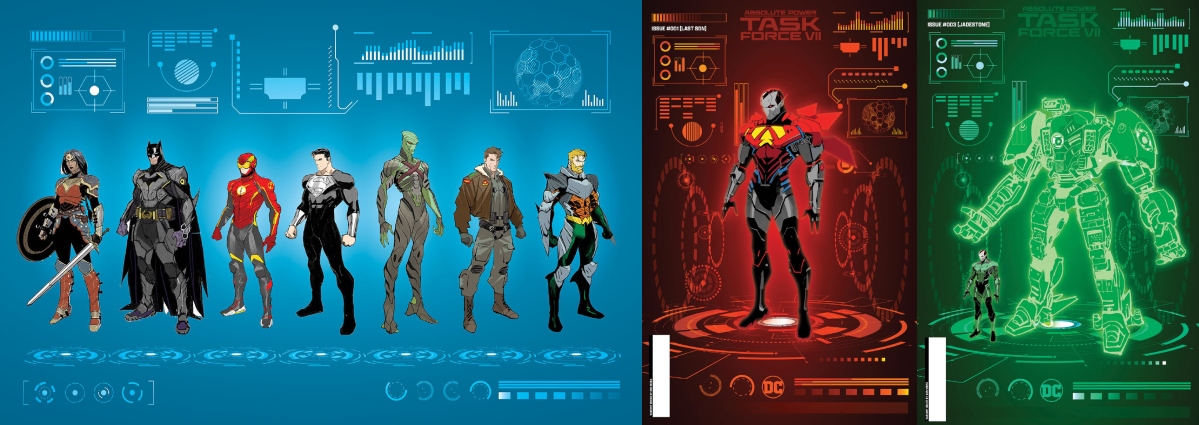![]()
The X-MEN movie franchise is definitely one muddled beast. It started off pretty straight forward with X-MEN all the way through X-MEN: THE LAST STAND. Things get a little bit weird with X-MEN ORIGINS: WOLVERINE, a film that is still technically canon, but is largely ignored in the grand scheme of things. The timeline gets more interesting with X-MEN: FIRST CLASS. It’s a period piece, and as such, logically takes place before any of the other X-MEN films (with the potential exception of X-MEN ORIGINS: WOLVERINE, which takes place throughout time–but again, the less said about that film, the better). THE WOLVERINE takes place after all the X-MEN films.
So while it’s all over the place, it’s not terribly confusing by this point. But then we have X-MEN: DAYS OF FUTURE PAST, a film that holds as both a sequel to X-MEN: THE LAST STAND, THE WOLVERINE, and X-MEN: FIRST CLASS, all at the same time. By the end of the film, all is well in the future, and we are primed to take on X-MEN: APOCALYPSE in the 1980s–a good while before the original X-MEN, which takes place in 2000.
So what does this mean for all the previous films? Are they all rendered null and void by this timeline reset? In a recent interview with Collider, Simon Kinberg confirmed what most fans assumed–that the film has essentially changed the course of history, and that things will not be as we saw it in the original X-MEN.
“It’s not leading necessarily toward exactly where we found Patrick Stewart and the X-Men at the beginning of X-MEN 1. There are some things that lead in that general direction, that was part of the philosophy we had at the end of DAYS OF FUTURE PAST is that you can’t fully change the course or current of the river, but you can just divert it a little bit, and we diverted it a little bit. So some things will be surprises; people could die that were alive in X-MEN 1, 2 and 3, or people could survive that died during 1, 2 and 3. In terms of being difficult, I don’t think it felt difficult because the world was more open, because it felt like we were still following the stories of our main characters. We imagine this like a trilogy of stories of Charles, Erik, Hank, and Raven and so we really were trying to tell what is the continuation and in some ways completion of their character arcs that we began in FIRST CLASS, without thinking so much about how it links to the year 2000. It was really about these people who began in some ways as friends or strangers, became friends, became enemies, became lovers, became all of this—how do you complete that story and in some ways sort of bring the family back together in this film?”
Of course, while all this makes pretty good sense when it comes to X-MEN films, we can’t forget that Fox also owns the rights to Deadpool and Gambit, both of whom are getting their own standalone films. Plus, DEADPOOL takes place in the present day, from what we can tell. So under which timeline do this films fall?
“Well [X-MEN: APOCALYPSE] takes space chronologically before those other films, so it’s more like those films have to acknowledge this than we acknowledge Gambit, Deadpool, or Fantastic Four or anything else that exists within the sort of Fox/Marvel universe. But I work on all of those films in one capacity or another, either as a producer on all of them and as a writer on FANTASTIC FOUR and this movie, so I’m certainly aware of all the different stories we’re telling at the same time, and they all are part of a larger fabric now, and so the world of Deadpool, the world of GAMBIT exists in a post-DAYS OF FUTURE PAST post-APOCALYPSE world where all of these stories are the same as our shared history. The same way that each of us of different ages knows about Nixon and knows about Reagan and knows about 9/11, our fictitious events like the stadium dropping on the White House in 1973 is part of the world in which Gambit, Deadpool, Wolverine on forward exists.”
Remember back when these comic book movies were meant to be as accessible as possible so as to appeal to the most uninformed of viewers? Yeah, those days appear to be gone. And I love it.
What do you think of Kinberg’s comments? Does all this of this make sense to you, or has it all become far too muddled to make any sense? Let us know your thoughts in the comments down below!
DEADPOOL hits theaters on February 12, 2016, and X-MEN: APOCALYPSE hits theaters on May 27, 2016.
SOURCE: Collider

 FOR FANBOYS, BY FANBOYS
Have you checked out LRM Online’s official podcasts and videos on The Genreverse Podcast Network? Available on YouTube and all your favorite podcast apps, This multimedia empire includes The Daily CoG, Breaking Geek Radio: The Podcast, GeekScholars Movie News, Anime-Versal Review Podcast, and our Star Wars dedicated podcast The Cantina. Check it out by listening on all your favorite podcast apps, or watching on YouTube!
Subscribe on: Apple Podcasts | Spotify | SoundCloud | Stitcher | Google Play
FOR FANBOYS, BY FANBOYS
Have you checked out LRM Online’s official podcasts and videos on The Genreverse Podcast Network? Available on YouTube and all your favorite podcast apps, This multimedia empire includes The Daily CoG, Breaking Geek Radio: The Podcast, GeekScholars Movie News, Anime-Versal Review Podcast, and our Star Wars dedicated podcast The Cantina. Check it out by listening on all your favorite podcast apps, or watching on YouTube!
Subscribe on: Apple Podcasts | Spotify | SoundCloud | Stitcher | Google Play



